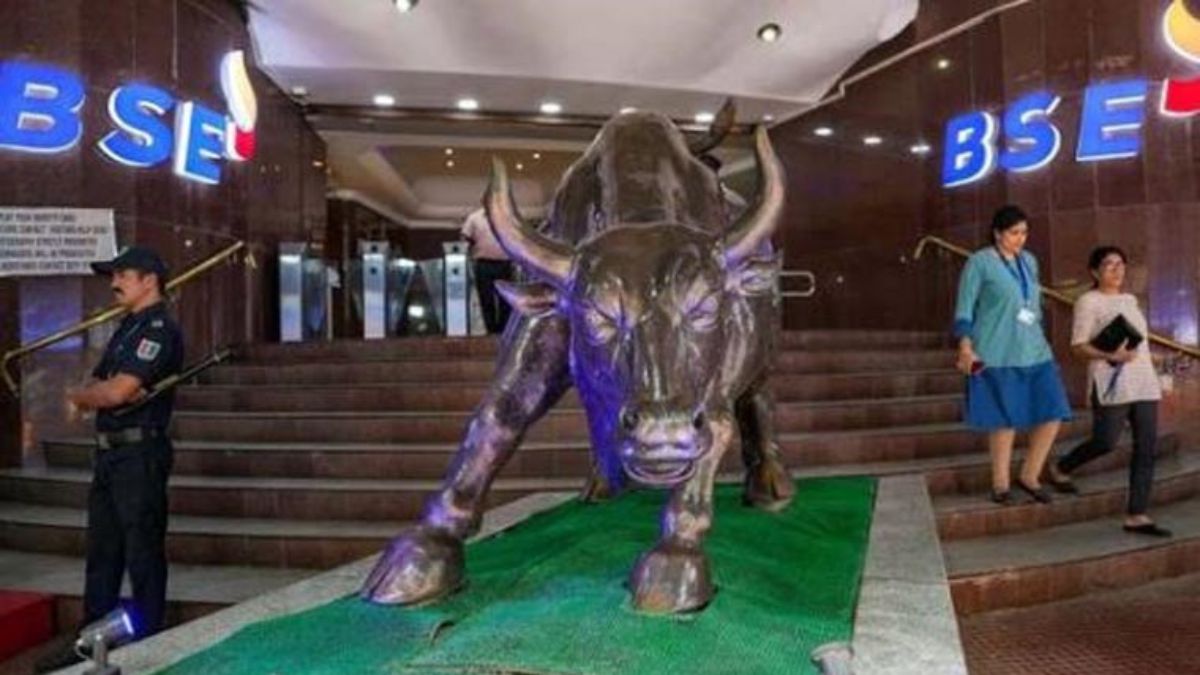Initial public offerings have long stood as the tentpole attraction of investment banking, combining financial number-crunching and flamboyant showmanship. Banks send their biggest hitters to pitch for top-line roles, investors jostle for allocations, CEOs triumphantly ring the opening bell, and the media breathlessly cover first-day trading like a Hollywood red-carpet premiere.
Today IPOs still command attention. Jumbo listings in Poland, India and Japan have grabbed the headlines in just the last couple of weeks. But IPOs seem to have lost some of their lustre. They’ve transformed from marquee events to marginal affairs — from grand festivals to county fairs, with the nagging sense that the real party is elsewhere.
Soaring markets, sluggish IPOs
As stock indices hit all-time highs, you’d expect a corresponding surge in IPOs. Instead, we’re seeing a curious disconnect. In the US, activity is picking up, but it’s a far cry from the usual buzz. IPO volumes are not just trailing behind the stimulus-fuelled bonanza of 2020-21; they’re even lagging the more normalised period of 2017-19.
It’s as if flotation candidates are slowly overcoming their stage fright, hesitantly stepping into the spotlight. Even JPMorgan CEO Jamie Dimon finds it “odd” that rising stock markets haven’t been accompanied by a commensurate increase in IPO activity
What about the AI revolution and other technological breakthroughs? Aren’t they driving a surge of listings? Not exactly, or at least not yet. Investors have pivoted from blue-sky bets to cold, hard cash flow.
Only seven technology companies have gone public in the US this year (of which three are trading below the IPO price in a market up over 20 per cent). The biggest flotation of the year has involved a cold storage Reit, and the latest market darling was an IPO of a private equity-owned aircraft maintenance firm. For all the froth in the stock market, investors seem to prefer down-to-earth investments to moonshots.
A global drought
But if Wall Street is slowly stirring from its slumber, most international exchanges remain in deep hibernation. From London to Hong Kong, São Paulo to Singapore, IPO markets range from comatose to quiet. Even Australia, despite its much-lauded superannuation pension system, has barely mustered $400mn in IPOs this year, with the standout listing being a burrito restaurant chain started by two New Yorkers.
With these meagre volumes, many international IPO markets aren’t mere backwaters; they’re fast becoming parched riverbeds, cracked and barren where once capital flowed freely. After-market liquidity remains a persistent problem. A few venues such as India and the Gulf region show signs of life, but these flickers of hope aren’t enough to reignite a global IPO bonfire.
Moreover, these emerging markets deals can be hit-and-miss. Hyundai’s $3.3bn IPO of its India unit drew scant interest from retail punters and opened sharply lower on its debut. In Saudi Arabia, Arabian Mills’s $270mn IPO was 132 times oversubscribed and yet didn’t start trading for a month after pricing — only to open down 10 per cent. Investors crowded into the $1.6bn Warsaw IPO of retailer Zabka, only for the shares to break issue price on the second day of trading. These may be good assets, but emerging market listings are still tough nuts to crack.
China’s unexpected stimulus package offers some hope after three dismal years for IPOs, but it highlights the extent to which its markets are subject to the whims of Beijing. The recent sharp price volatility shows that much larger injections of epinephrine will be needed in any case.
Diagnosing the IPO malaise
So what’s behind this IPO sluggishness? The reasons are multi-faceted, but fundamentally the problem boils down to a lack of compelling companies on the supply side, a dearth of actively managed funds on the demand side, and well-meaning policy interventions that inadvertently made things worse.
But first there’s the lingering impact of the ultra-loose fiscal and monetary policies of 2020-21. Unprecedented stimulus allowed companies to raise private money at nosebleed valuations and pushed many to accelerate plans to go public, either through traditional IPOs or de-SPACs. Now, with many of those pandemic-era stars trading below their initial prices, investors are nursing their wounds. At the same time, some companies hesitate to go public, fearing that valuation will fall short of the levels achieved in their last private fundraising round. A “down round IPO” could also call into question the marks of the entire portfolio of their private equity backers, jeopardising their ability to raise their next fund.
That effect will wear off, as investor memories fade and private owners itch for an exit. Private equity faces mounting pressure: distributions to paid-in capital (DPIs) ratios have fallen, and a large backlog of unsold assets has piled up. Although flotations account for less than 10 per cent of exits, buyout and venture capital firms still rely on them as a credible way to cash out — if only to create price tension for other exit strategies. Now they’re running out of options.
More structurally, the boom in private capital has reshaped the IPO landscape. Changes in US law in 1996 eased state-level securities regulation, opening the floodgates for private fundraising. Combined with historically low interest rates and persistent tax bias favouring debt financing, this has made private equity more appealing than public markets.
With access to deep pools of private capital, many founders prefer to retain control of their companies rather than face the burdens and hassles of going public. Why contend with the pressures of quarterly earnings calls and activist shareholders when private equity offers fewer (or at least more manageable) constraints? As a result, companies can stay private much longer, reducing the urgency for an IPO. Additionally, large private companies like Stripe can raise money to provide liquidity to their employee shareholders without going public, further diminishing the incentive for an IPO.
Public market investors fret that the primacy of private capital risks turning the IPO market into the financial equivalent of Filene’s Basement, the legendary Boston retail outlet that sold excess merchandise from its upscale counterpart, Filene’s department store. The worry is that much of the good stuff has been scooped up in private deals, leaving public investors to rummage through what’s left — often companies struggling to secure private funding or whose shareholders are racing for an exit. This raises the spectre of adverse selection, with private owners trying to offload unwanted inventory on to the stock market. And when companies do go public, it’s often more about insiders cashing out than raising growth capital — hardly an exciting narrative for investors.
While the prospect of staying private beckons, the regulatory load for a public company puts off some candidates. Going public means wading through thickets of red tape and running up huge costs, thanks to regulations like the 2002 Sarbanes-Oxley Act and new climate-related rules. Annual reports are longer than Russian novels. This is manna for lawyers, auditors, and consultants, but a heavy tax for listed companies.
It hasn’t all been in one direction: the US enacted the 2012 JOBS Act and other measures to lighten the load, and overseas jurisdictions have been trying to streamline the listing process. But overall, the high cost of going public gives owners another reason to stay private for longer.
Another challenge has been the decline of broker research. Reforms like Eliot Spitzer’s early 2000s crackdown on conflicts of interest — which were largely emulated by overseas regulators — prompted banks to slash analyst coverage, especially outside the large-cap space. Fewer analysts mean less coverage, less investor interest, and a self-reinforcing cycle of declining liquidity. The situation worsened with Europe’s MIFID II directive, which decimated the research ecosystem by “unbundling” payment for research from trade execution commissions. The EU and UK have largely rescinded these rules, but as FT Alphaville explained, the damage has been done.
Then there’s the rise of passive investing and concomitant decline of stockpickers. Index funds have made it cheap and easy for investors to access markets, but drained liquidity out of IPOs. With more money flowing into passive vehicles, there’s less cash for active managers to back new listings. In London, long-only fund managers — once a force to be reckoned with — now pack a flyweight punch. Just look at National Grid’s £7bn rights issue in May, where the two lead banks ditched the long-standing practice of sub-underwriting to institutional shareholders and pocketed all the fees themselves.
And prudential regulations have exacerbated this issue, with Solvency II discouraging European insurers from holding equities, and pension accounting rules forcing pension funds in countries like the UK to pile into bonds. Without a deep pool of fundamental investors, selling an IPO can sometimes feel like opening a restaurant in a town where everyone’s signed up for meal kits.
Size matters
While the overall IPO market struggles, investor demand for larger deals remains robust. Consolidation among asset managers and tepid market liquidity mean that investors naturally gravitate towards bigger company IPOs. These larger flotations offer the scale and liquidity that major funds crave, creating a bifurcated market where whales can still make a splash while smaller fish have to swim furiously to create a ripple.
This preference for size also explains why overseas listings can struggle to garner interest. The 1990s and 2000s saw blockbuster IPOs of state-owned giants all over the world, but the halcyon days of big privatisations are mostly over. With telecoms, energy, and financial juggernauts in private hands, there’s little left to rouse sleepy stock markets. Singaporean brokers reminisce about the humongous Singtel IPO in 1993, when retail investors lined up in Raffles Place to apply. Now they bemoan that only “one minuscule IPO” has graced their exchange in 2024.
These privatised companies had proved so appealing not only due to their profitability (often from a legacy near-monopolistic market position), but also due to their size. In that sense last week’s successful $2.3bn IPO of Tokyo Metro is a throwback to a golden era.
The US is able to birth companies that eventually grow into behemoths, but too many overseas companies lack the scale to appeal to the full waterfront of investors. So relatively few make the cut.
As Mario Draghi noted in his recent report on competitiveness, no EU company with a €100bn market cap has been created from scratch in the last 50 years, “while all six US companies with a valuation of €1tn have been created in this period.” Size does matter, now more than ever.
One arguable exception is China, a vast market able to support numerous big companies. This explains why in politically more supportive periods, its IPOs have appealed to investors around the world. Unfortunately, the recent crackdowns on such sectors as tech and education have reminded fund managers that government action can eviscerate, if not incinerate, equity value overnight.
Unintended policy consequences
Ironically, many of the Western government policies contributing to the IPO slowdown were enacted with good intentions. The 1996 American legislation was designed to enable capital to flow across state lines. Stricter disclosure rules were implemented to increase transparency. Analyst independence was meant to protect investors. Rules on insurance and pension funds aimed to safeguard the assets of policyholders and beneficiaries. The rise of passive investing has made the stock market more accessible for the average person. Yet collectively, these developments have created an environment that’s increasingly inhospitable to new listings.
Or maybe that was the point all along. Policymakers perhaps feel more comfortable shifting fundraising to the private sphere, where sophisticated parties can fend for themselves and there’s less chance of political fallout or finger-pointing when things go wrong. It may sound perverse to impede public access to the best companies, but that is the consequence of policy choices.
A glimmer of hope?
Will the market for new flotations bounce back? Almost certainly yes, with markets at all-time highs and after two years of slow activity. There also remains a lot of interest in certain areas, such as biosciences and AI-related spaces, including power and infrastructure. Private markets are flush with cash, but public money may be cheaper to raise in some sectors.
And there will be good deals on offer for investors, perhaps because the hype has dissipated. It’s encouraging that on its third attempt to list in Frankfurt, academic publisher Springer Nature has so far traded solidly in the after-market. Tokyo Metro, an old-economy name, soared 45 per cent on its debut last week.
But it’s unlikely that IPOs will overall recapture their former glory. For those of us who grew up [sic] in the equity capital markets, it’s a deflating spectacle. Long gone are the days of deal closing parties that were so epic you couldn’t remember them the next day. Lucite deal toys, which used to be distributed to everyone involved in an IPO, are now carefully rationed like wartime food vouchers.
The IPO, once the life of the party, now finds itself nursing a drink in the corner, wondering where all the revellers have gone.










 Apparently, one third of people are suffering from imposter syndrome at any given time, and 70% will experience it at some point.
Apparently, one third of people are suffering from imposter syndrome at any given time, and 70% will experience it at some point.






























































































































































You must be logged in to post a comment Login